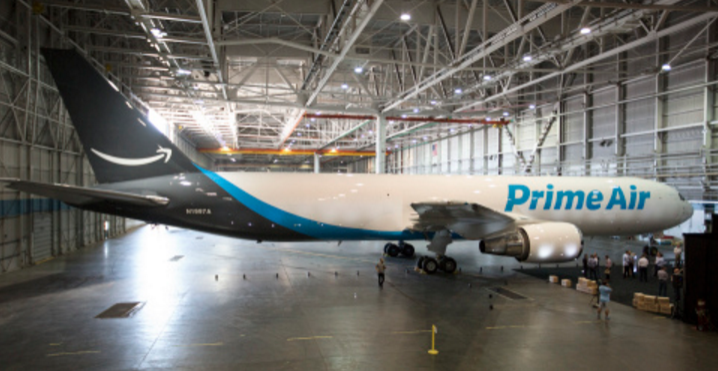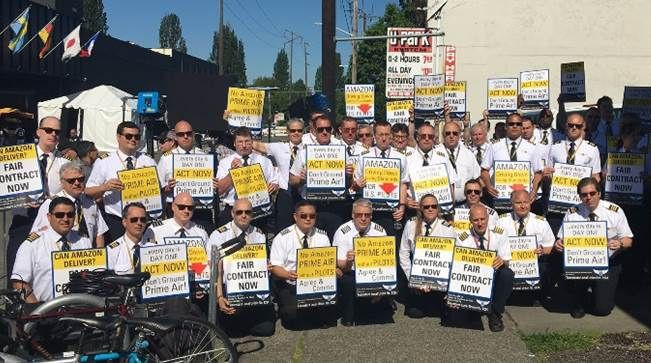Prime Air Pilots Protest Work Conditions Outside Amazon Shareholders Meeting

Pilots who fly for Amazon’s Prime Air cargo planes staged a protest at the company’s annual shareholders meeting Tuesday over short-staffing and poor working conditions.
The pilots are employed by Atlas Air Worldwide Holdings and Air Transport Services Group, which are contracted to fly 40 planes for Amazon Prime Air by 2018. Amazon announced the partnerships last summer when the online retailer introduced its first ever branded cargo airplane.
Read: Dish Partners With Amazon To Bring Echo And Alexa Voice Control To Dish DVRs
Capt. Bob Kirchner, a long-time Atlas Air pilot who was at the protest, said the pilots are “excited” about Prime Air, but his employer is hiding issues, such as short-staffing and poor working conditions.
“The short-staffing has been going on for over a year now and it’s getting worse and worse,” Kirchner told International Business Times.
He added that Atlas is “having trouble getting pilots” and that people are turning down jobs often when they find out what’s going on. Because of short-staffing, pilots are facing fatigue, sickness and the impact it has on their family lives because they have to fly out extra days, he said.
“Our pilots are basically gone 17 days and now they’re pressing on 19 and 20,” Kirchner said, adding that pilots get paid 60 percent less than colleagues at other carriers and are offered no retirement benefits.

Atlas Air’s working conditions are driving pilots away at a rate four times higher than last year. The company lost about 100 pilots this year so far, Kirchner said. The lack of pilots could affect Amazon’s reliability, he added.
Read: Amazon's New Fire Tablets Include Kid Versions, Lower Prices
The International Brotherhood of Teamsters, which represents Atlas Air and Air Transport pilots, sent a letter to Amazon's board about problems the employees were facing.
“Amazon is highly dependent on both [Air Transport's] and Atlas Air’s ability to staff, maintain and operate the aircraft leased to Prime Air,” the letter said. “We grow increasingly concerned that both companies are experiencing operating difficulties that could jeopardize their ability to adequately fulfill their obligations to Prime Air and Amazon.”
The Teamsters also suggested the company work with pilots and the union to solve the issues, adding that “working collaboratively will decrease any potential disruption of service and lead to improved outcomes for both Amazon and our [Air Transport] and Atlas Air member pilots.”
In a statement to IBT, Amazon said: “Questions about the working environment of our partners is best addressed by them. All of our delivery providers must abide by our Supplier Code of Conduct, and we take seriously any allegation that a delivery provider is not meeting those requirements and expectations. That said, we are pleased with our partners’ performance and their continued ability to scale for our customers.”
Kirchner said he hopes Amazon can address the problems, which could compel Atlas to take action on the issues.
“We just feel that they’re ignoring the shortage,” Kirchner said. “And we want to see Prime Air be successful.”
© Copyright IBTimes 2024. All rights reserved.




















